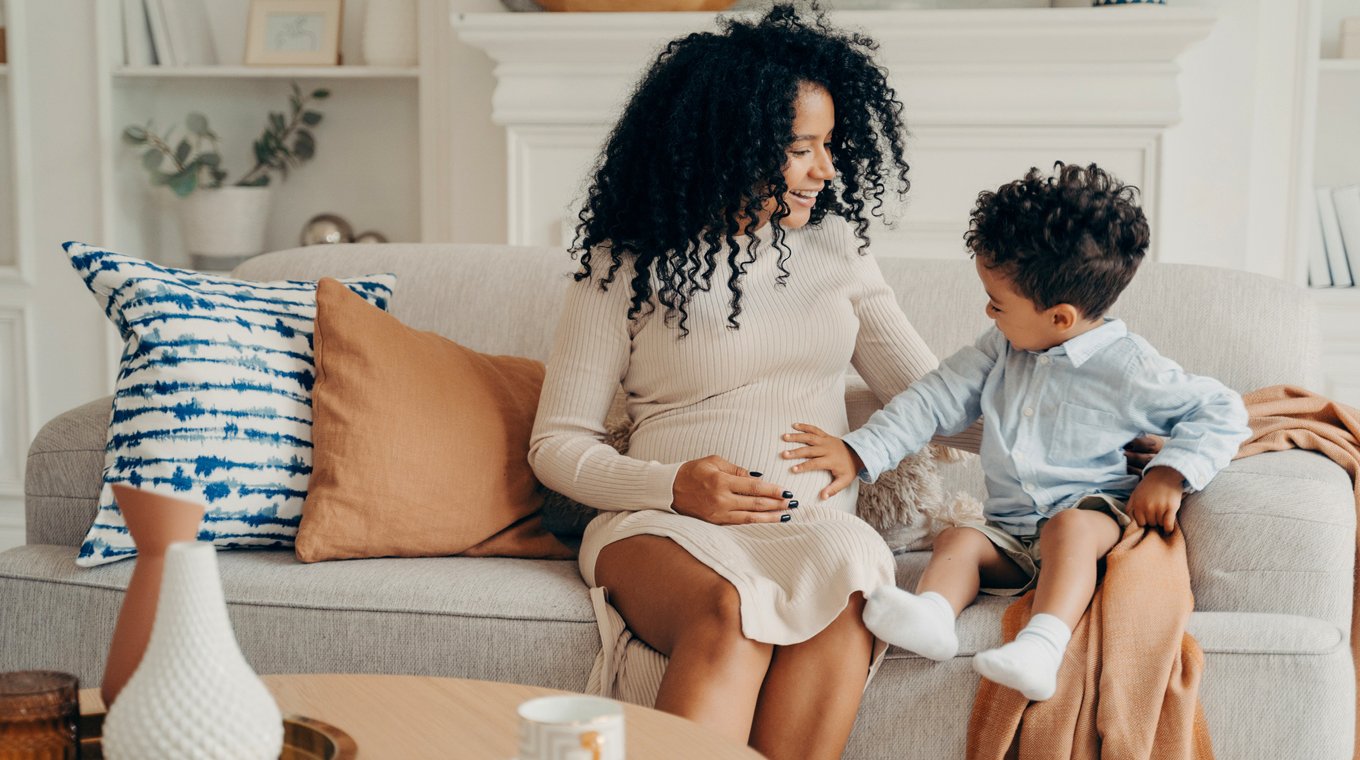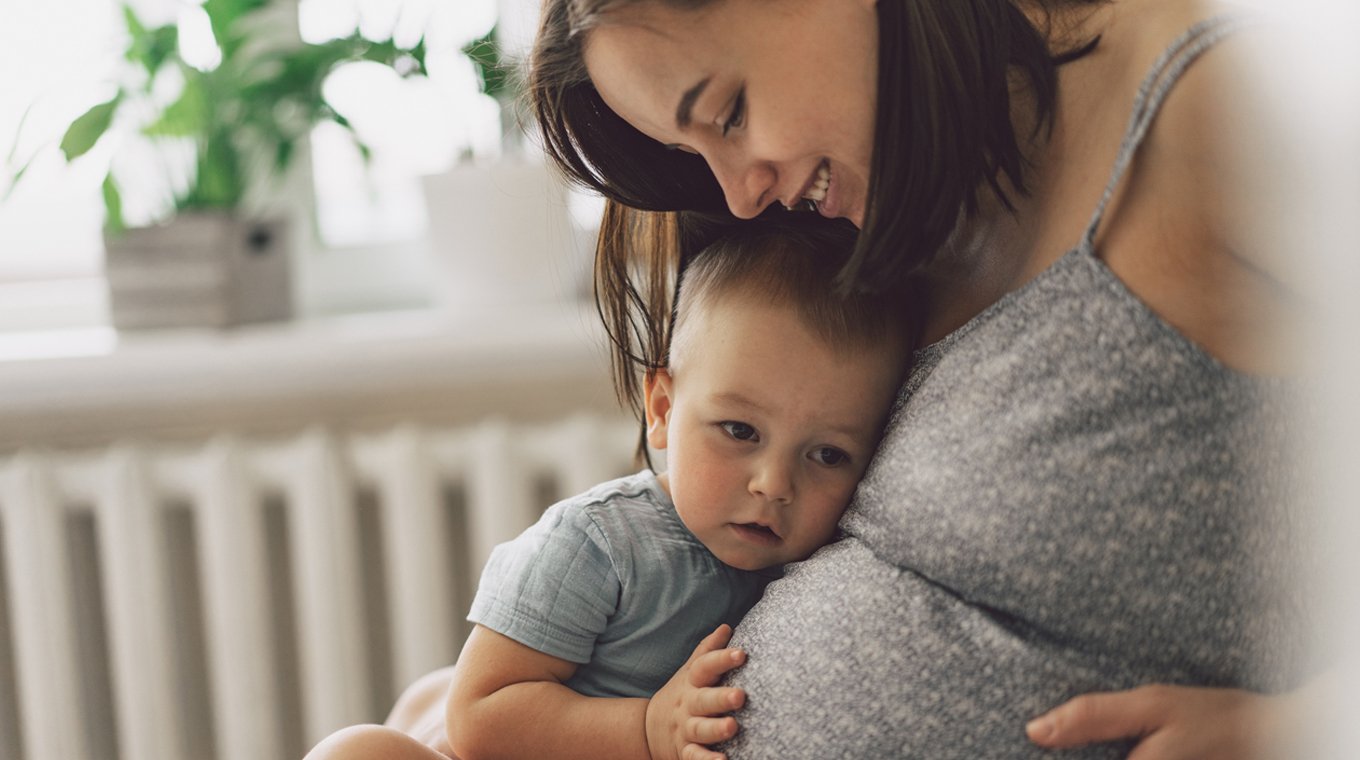In this article
So you’ve decided you want to add to your growing family. You can’t wait to hold another little person in your arms and get love-drunk on that sweet newborn smell all over again. But aside from all the joy and excitement that comes with a new baby, there are many differences you’ll experience between your first and second pregnancy.
These differences aren’t limited to changes in the experience of pregnancy itself. A second pregnancy, and growing family, will impact everything from child care and space at home to how you get out of the house (if you’re even able) and household finances. Get acquainted with everything that comes along with a second pregnancy, including physical differences, the changes it brings, and how to prepare for all the transitions yet to come.
What is secondary infertility and what to know about it

Depending on how easy it was for you to get pregnant the first time, you might assume that your second will go just as smoothly. However, some things have changed between then and now.
One of the things you might least expect is a struggle with secondary infertility. Yes, secondary infertility sounds exactly like what it is. According to Penn Medicine, it is the inability to conceive or carry a baby to term after previously giving birth. Here are some factors that may contribute to secondary infertility:
Causes
- Age, especially if you’re 35 or older
- If you’ve experienced changes to your period, like irregularity or other uterine changes
- New or existing conditions like PCOS, endometriosis, or changes in sperm health
- Medication: There are different medications that your medical provider may consider, especially those to increase ovulation if it is irregular
- IUI (intrauterine insemination): Involves surgically placing sperm inside a woman’s uterus
- IVF (in vitro fertilization): Involves daily injections that stimulate your ovaries, followed by a surgical procedure to retrieve eggs, and fertilizes them in a lab to make embryos; the embryos continue growing in the lab and are finally transferred into the uterus
Deciding to take this course of action should be discussed with your medical provider but might not be recommended until a specific amount of time has passed.
“If you're 35 or older, talk with your provider after six months. Consider talking to them sooner if you experience risk factors for infertility. These include having few or no periods or endometriosis. Your provider can help you decide whether you might benefit from specialty care or treatment at a fertility clinic,” Chandra C. Shenoy, M.D. wrote for the Mayo Clinic.
How a second pregnancy changes everything

As mentioned, getting pregnant a second time is only half the battle. A second pregnancy changes everything. From your energy level during pregnancy, to the physical space to accommodate your growing family — be prepared for nothing to be the same.
“When we decided to try for a second baby, the foremost thought was that we didn’t want our daughter to be an only child. But pretty quickly after I got pregnant the reality of how much things were going to change set in,” mom of 2 Danielle H. shared with Mom.com. “Everything from how we got in and out of the car to packing a diaper bag for two kids to run errands became twice the chore.”
Of all the changes that are about to occur, there are a few things that are within your control. For example, the right timing between your two pregnancies will not only leave you emotionally and mentally prepared to add another person to your family, but physically it’s beneficial as well. According to the Mayo Clinic, you can potentially reduce the risk of pregnancy complications and other health problems, by waiting 18 to 24 months after a live birth before getting pregnant again.
How to prepare for a second child

Preparing for a second child won’t be a walk in the park, but it's not impossible. In this case, taking inventory ahead of your baby's birth or even before getting pregnant is a great way to get prepared for your second child.
Finances
Talk things over with your partner, or review how your finances are doing right now. Are you balancing pay check to pay check, like more than half of Americans do, or do you have a little wiggle room? There is no doubt kids are expensive, so planning accordingly will do nothing but help you.
Balancing sibling attention
Remember the days back when your first kiddo was a newborn? All the time you spent cuddling them, carrying them, and watching them just breathe? Well, the planets could align, allowing your newborn to sleep and older kiddo to be occupied at the same time, but chances these moments will be few and far between. Take time with your older child to talk about how they feel about having a new sibling, the good, the bad, and how they are preparing for a second child.
Preparing to start all over again
Depending on how long it’s been since you’ve had a newborn it might feel like your first rodeo all over again. But even though having a newborn can try your patience and there will be moments when you wonder if having a second child was even a good idea, remember this too will pass.




